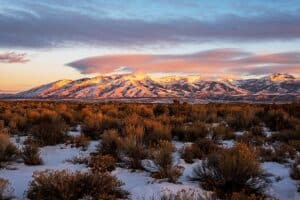Finding a reasonably priced hunting tract can be harder than finding a 12-point buck, but it can be done.
Rural land used to be plentiful and cheap. Farmers left for city jobs while technology allowed ever fewer farmers working less land to produce more and more. Good land was made more productive. Marginal farm land could not pay for itself, and it sold cheap.
The days when a large supply of rural land kept prices low are gone.
Americans have rediscovered the countryside as tax-advantaged farms, hobby farms, second homes, retirement spots and investments. Demand has pushed up prices.
Major institutional investors and speculators are buying large tracts of timberland. Developers are buying large acreages wholesale, dividing them and selling retail.
Prices of crop land, pasture and timberland are climbing everywhere.
This is bad new for hunters who are looking for 100 acres.
Five kinds of hunting ground can still be purchased at reasonable prices.
- Recently timbered woods, generally referred to as “cutover.” This includes everything from clearcuts, which remove all trees, to selective cuts that take only certain species above a certain diameter. The more severe a cut, the lower the asking price should be. Game likes cutover.
- Marginal farm property. Most farms have acreage that’s not agriculturally productive. It might be wet, rocky, steep or hard to access. The owner may have enrolled it in a federal program that pays to keep such land out of production. If it can be readily divided from the farmer’s core property, make an offer.
- Overgrown pasture or fields. This land has gone to seed. It’s covered in brambles, scrub trees, multiflora rose and other “trash” vegetation. It’s great wildlife habitat.
- Remote and hard to get to. You’ll need four-wheel drive or an ATV. The more inconvenient, the cheaper the price and, presumably, the better the hunting.
- Wetlands. Marsh on flyways is prime bird-hunting property, and priced accordingly. But bogs, swamps and yucky ground that is not much used by ducks is generally good habitat for deer, bear and small game.
If you’re buying 50 to 100 acres from a larger tract, ask the seller to finance the sale, in whole or in part.
Seller-financing allows the buyer to avoid the rigmarole and costs of going through a conventional lender. You won’t have to pay fees, points and insurance. Buyers generally use a smaller down payment in a seller-financed sale and a lower interest rate that is not front-loaded.
Work with your local lawyer when arranging any seller-financed deal.
This content may not be used or reproduced in any manner whatsoever, in part or in whole, without written permission of LANDTHINK. Use of this content without permission is a violation of federal copyright law. The articles, posts, comments, opinions and information provided by LANDTHINK are for informational and research purposes only and DOES NOT substitute or coincide with the advice of an attorney, accountant, real estate broker or any other licensed real estate professional. LANDTHINK strongly advises visitors and readers to seek their own professional guidance and advice related to buying, investing in or selling real estate.









Add Comment